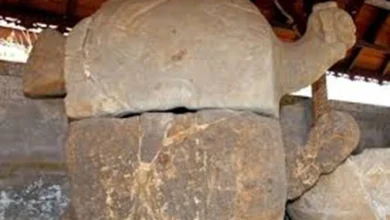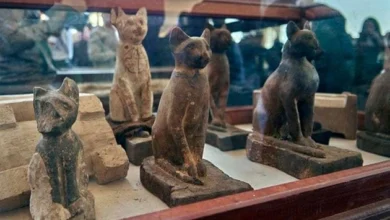Political murders that shocked Ancient Rome

Ancient Rome is architecture, culture, science, and, finally, a huge empire with one of the most effective armies in history. In many areas, Rome was centuries ahead of all the surrounding territories. At the same time, blood was regularly shed on the streets of Rome and even in the Senate building. At such moments, the conspirators forgot their civility, waited for the victim, and “canceled” it with swords. This often happened in broad daylight in front of dozens of witnesses.
5 Political murders that shocked Ancient Rome
1. The murder of Tiberius Gracchus
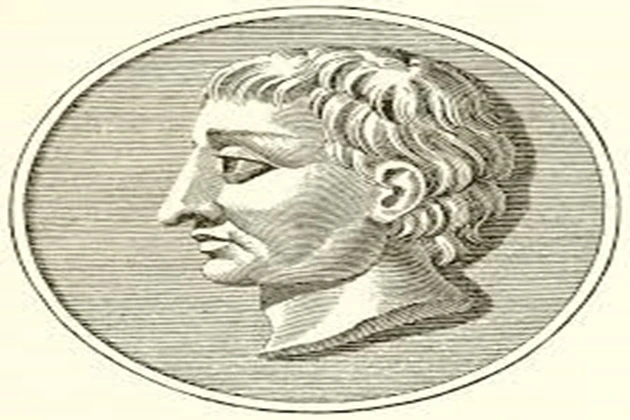
Tiberius Gracchus was born into a noble family and participated in the Third Punic War, after which he made a political career. Despite its proximity to the upper class, the attention of the people’s tribune was focused on outdated and unfair laws that limited access to land plots for the lower class. After the destruction of Carthage in 146 BC, the Roman Republic reached the peak of its power.
Along with the unprecedented growth in the elite’s wealth, inequality increased. Most of the fertile land belonged to the tenants simply by birthright. The rules established more than a century ago provided for a limit on the ownership of allotments, but they were violated everywhere. Corrupt officials facilitated this, and numerous holes allowed laws to be interpreted differently.
Tiberius Gracchus decided to change the system through agrarian reform. Part of the land was withdrawn from public use (the possession of influential families) and transferred to small farmers. The bill met fierce resistance from the political elite. Visit . A F R I N I K . C O M . For the full article. On June 13, 133 BC, a group of senators arrived at a meeting of the Plebeian Council. Due to the noise, Gracchus could not shout at the supporters, so he put his hand on his head.
With this gesture, the tribune indicated the danger to his life. Tiberius’ opponents immediately interpreted the gesture as demanding a royal diadem and wanting to restore the monarchy—a crime for which anyone was executed in the Roman Republic. Soon, muscular men with batons began to gather at the place of debate. On this day, several hundred supporters of the reform died, and the body of Tiberius Gracchus was dumped into the Tiber.
2. The murder of Marcus Livius Drusus
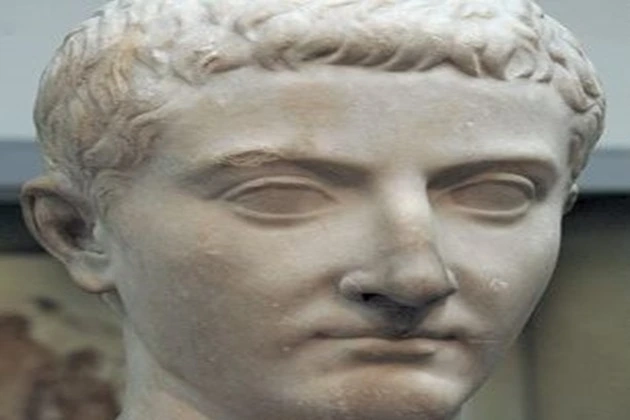
While most Roman politicians were engaged in the struggle between factions, Marcus Drusus paid more attention to the problems of the allies in the Apennine Peninsula. The numerous peoples who inhabited Italy were second-class people. On the one hand, they participated in military campaigns and fought no less bravely than the Romans. On the other hand, they did not receive appropriate remuneration, did not have citizenship, and could not count on humanitarian assistance during the years of crop failure or after natural disasters.
Marcus Livius Drusus became a tribune of the people in 91 BC and introduced many bills, trying to maneuver between the interests of different groups. For example, the courts were transferred to the control of the Senate, but the Senate itself should be doubled by involving the military.
A financial assistance system for the urban plebs was being developed, and the question of redistributing “public land” in favor of small farmers arose again. Surprisingly, all but one of Drusus’s proposals were accepted. The Senate flatly refused to consider the initiative to grant citizenship to all residents of Italy. In December of the same year, Drusus suddenly screamed, returning from the forum and going through the crowd. There was a knife sticking out of his thigh, and blood spilled all over the floor.
He managed to be brought home, where, with his last breath, he examined the grieving faces and said: “Friends, will Rome have a citizen like me?” The murderer of Drusus was never caught, and the Allied War began a few weeks later. Rome won a landslide military victory, but impressed by the scale of the uprising, the Senate granted citizenship to all residents of the allied cities in Italy.
3. The murder of Gaius Memmius
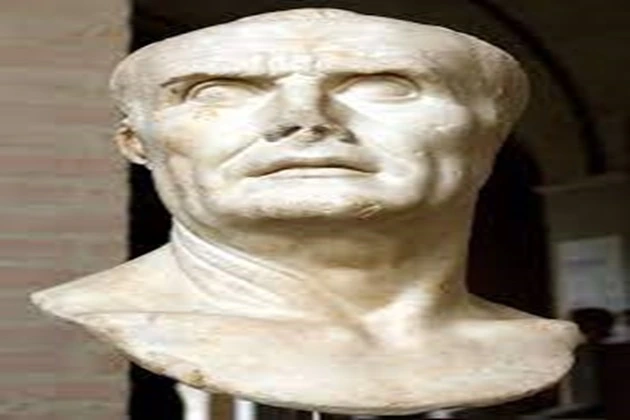
Historians have little information about Gaius Memmius’s life before entering politics. However, his subsequent biography is closely connected with the prominent Romans of that era. A young man from a Plebeian family, Memmius took advantage of the only social elevator and made a military career. Having reached the post of governor of Macedonia, Memmius decided to join the political struggle.
Possessing an oratorical talent, he attacked Gaius Julius Caesar, accusing the latter of colluding with the enemies of Rome. He also opposed the triumvirate formed by Caesar, Pompey, and Crassus. His career peaked in 53 BC when Gaius Memmius applied for the post of consul. A little more and the incredible would happen. A plebeian without connections and patrons will occupy the highest position in the republic.
There is even a coin minted in 51 BC with the inscription: “Gaius Memmius — Emperor.” Meanwhile, were still 24 years left before the actual first Roman emperor appeared. The fall turned out to be just as rapid. In 49 BC, a politician accused of bribing voters went into exile. Hopes for a return to big politics died with the outbreak of the civil war. Memmius’ trial ends in Greece. According to rumors, he was overtaken by Caesar’s revenge for the words spoken earlier. The body of the would-be consul was not found.
4. The murder of Gaius Julius Caesar
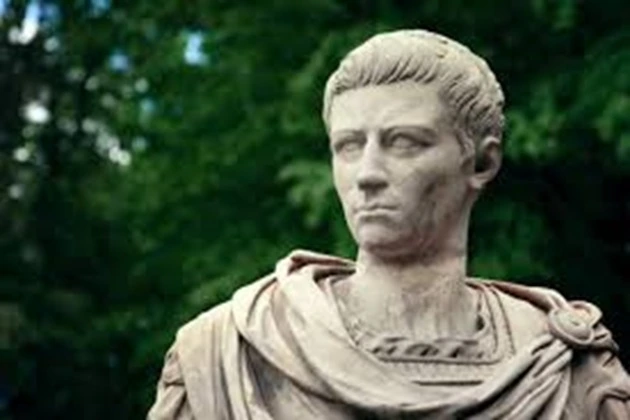
This is probably one of the most high-profile political assassinations in history. The deification of Caesar began during his lifetime. The general, revered in the army, who won fame in battles, entered into a confrontation with the Senate. As is usually the case, such a large-scale figure has an ambiguous assessment. Gaius Julius Caesar served Rome and annexed vast territories to the republic — from the Atlantic Ocean (including part of Britain) to the Rhine in modern France.
However, while building a personal career, he used all methods, including eliminating competitors, bribing politicians, and violating contracts. Caesar wanted to return to the capital and, therefore, demanded guarantees of judicial immunity from the Senate. The senators understood how strong a competitor was rushing to power and refused.
Thus, one of the most famous people in Rome was outlawed. Alea iacta est (the die is cast), Caesar crossed the Rubicon River and headed with loyal people to Rome. Thus began a four-year civil war, as a result of which Gaius Julius Caesar became consul and then dictator for the life of the Roman Republic. Meanwhile, remembering the ancient laws, the great commander refused the royal diadem. However, he already possessed unprecedented fullness of power.
On March 15, 44 BC, Caesar held a meeting at the Pompeii Theater. At some point, the dictator was surrounded by people who wanted only one thing. The conspirators attacked suddenly and stabbed more than 20 times. According to eyewitnesses, Caesar tried to fight back. Still, when he saw Marcus Brutus among the attackers, whom he considered a loyal ally, he seemed to lose the will to further resistance. The body of the lifelong dictator was burned on the same day, right in the theater.
5. The Murder of Caligula

Caligula is an agnomen. His real and full name is Gaius Julius Caesar Augustus Germanicus, reflecting the succession of several noble families at once. The future “Father of the Fatherland” had several older brothers who fell victim to palace intrigues. Caligula was saved by powerful patrons who hoped to rule Rome while remaining in the shadows.
The third emperor ascended the throne in 37 and immediately began to demonstrate arbitrariness. The costs of organizing celebrations and performances have increased enormously. For this, Caligula rightly received the status of a wastrel. His prematurely deceased sister Drusilla became the first woman to be ranked in the Roman pantheon of gods. The emperor was thinking about making his beloved horse Incitatus consul.
However, many historians believe that this statement should not be taken literally. Most likely, it was a joke aimed at ridiculing the arrogance and luxurious life of senators. Caligula’s biography is full of crazy details, but since the second half of the 20th century, historians have been increasingly reviewing the emperor’s personality. This is facilitated by discovering new sources and more accurate translations of old chronicles.
During the reign of Caligula, Rome captured Mauretania and finally covered the Mediterranean Sea. Large-scale construction projects resumed in the cities, and poor residents of the provinces received financial support directly from the treasury. In addition, the salaries of soldiers have increased significantly. On January 24, 41, Caligula opened the list of Roman emperors who died violently. In total, 43 of the 69 emperors would be killed before the division of Rome in 395. Most of them will die in the first year of government.


